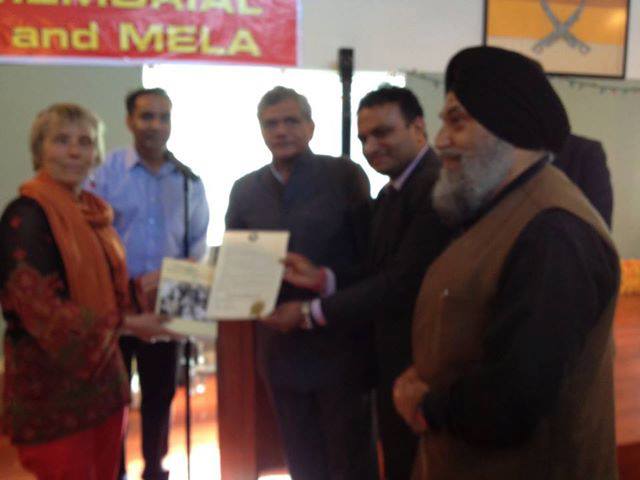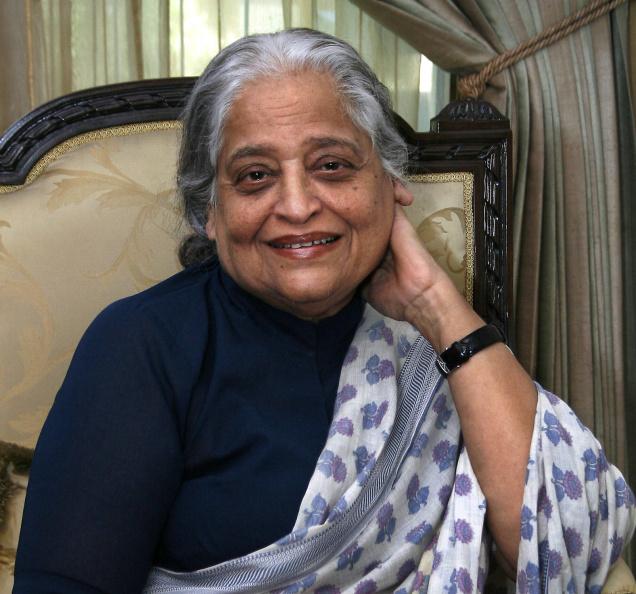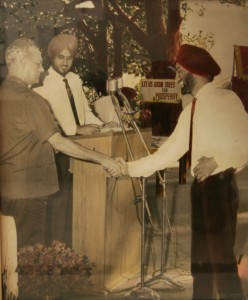I completed the final version of the poem ‘Dheeaan’ not long ago when the news of infanticide started to get worse in India, especially in Punjab and Haryana. It seemed that there were new stories more horrific than the last several times a day. The ratio between newly born boys and girls dropped from 1000 to 700 and was still going down. While I recently put the finishing touches on my poem, I had been thinking about it since the senseless India- Pakistan wars in 60′s and 70′s.
I wrote the first version of ‘Dheeaan’ after listening to Noor Jahan’s beautiful rendition of the popular Pakistani war song “Eh Puttar Hattan te Nahi Wikde” meaning “Our sons cannot be bought in the marketplace.” I heard this song during the 1965 India Pakistan war. I still remember watching fighter planes being consumed by flames and exploding in mid-air, unleashing heavy artillery fire and a sea of bombs in the unspoiled wilderness just outside our village before returning to their base, and huge tanks colliding with equally massive tanks in the Khem Karan and the Wagha sectors. My ancestoral village, Jandiala is almost the same distance (10-15 miles) from Wagha border towards Lahore as the village Bhakna is on the Amritsar side, where I grew up under the auspices of Baba Sohan Singh Bhakna.
Here is Noor Jehan’s video:
I have always liked Noor Jehan’s melodic voice and this was no different. But as melodic as Noor Jehan’s voice was, or how much I loved its tune, the tone and message of the song always irked me. It wasn’t because I did not understand what was being said of Pakistani patriotism; Indian patriotism or any other country’s patriotic songs are not so different either. It was because of what was left unsaid. If sons cannot be bought at the marketplace, what is being implied about daughters? Are they more expendable or replaceable?
The other obvious reason that I found the lyrics of this song hypocritical was that it was a song about the glorification of senseless wars. In addition to it being a colossal waste of human life, it was even more senseless because it involved brothers fighting with brothers over something that could have been taken care of at the dinner table. The whole world was laughing at them when they were at each other’s throats, not once, but three times. My family and other close relatives, who used to live in district lahore told me just how pointless it truly was. There are Dhillons, Randhawas, Cheemas, Gills, Virks, Chatthas, Bhattis,Ghumans and so on, literally brothers fighting against brothers on both sides of the war and for what?
Only the mothers, fathers, brothers and sisters who lost their loved ones or had them seriously wounded, maimed and incapacitated for the rest of their lives in those avoidable wars could understand the true meaning of the tone of the song. So while it is a pretty song on the surface with the ever so beautiful Noor Jahan, who, along with Lata Mangeshkar, is one of my all time favorite singers; I wish if such a tone and tenor could be employed in campaigns against wars, the dowry system, infanticide, and in support of women and girl-child rights, both in India and Pakistan and every where else for that matter. There are some helpful organizations such as Nanhi Chhaan, that are making great strides in their activism, but there are some things only musicians, poets, writers, and artists can do. Check out my write-up on the Nanhi Chhaan foundation at Khalsa College here.
I rewrote the final version of ‘Dheeaan’ as I watched the same song sung by Noor Jahan posted on the you tube after so many years. And it is my hope that it will provide the story left untold by Noor Jehan’s rendition. The story of the daughters. It has been published in some well known Punjabi magazines and here: Punjabi poem in Gurmukhi. It was only recently that I put this kavita to moving images set to my voice and posted on the youtube and my FaceBook. I would love to hear your comments.



Leave a Reply